The Co-operative Bank’s Greatest Hits
Amidst The Co-operative Bank’s financial problems and the scandals and political mudslinging of recent weeks, it’s easy to forget how much of an ethical pioneer the bank has been over the past twenty years or so, since it first launched its Ethical Policy. As an antidote to the cynicism, we present The Co-operative Bank’s Greatest Hits – a (very subjective) look back at some of the reasons the Save Our Bank campaign exists.
1. Launch of world-first customer-led Ethical Policy, 1992
Back in 1992 The Co-operative Bank first surveyed its customers on where they did and didn’t want their money invested. The result was an Ethical Policy promising customers that their money would not fund, among other things, human rights abuses, animal testing of cosmetics and arms sales to oppressive regimes. The bank has turned away over £1 billion to businesses which breach the Policy, and crucially it is backed by independent auditing and transparent reporting on implementation.
2. First Fairtrade vending machines, 1995
After Co-operative stores became the first to introduce Fairtrade coffee, the Bank worked with vending machine suppliers to become the first business to offer Fairtrade coffee in its vending machines. A must for any self-respecting ‘responsible’ business today, made possible by the Co-operative Bank’s innovation. Thanks to the bank’s work lobbying hundreds of other companies telling them to follow suit, top UK businesses including Alliance & Leicester, Lucas Varity, Jarvis, and the Woolwich now offer Fairtrade coffee to their staff, as the history of Fairtrade in the UK attests.
3. The landmine ad, 1996
Perhaps the most hard-hitting advert the bank has ever produced, this 1996 cinema ad described the impact a Valmara 69 landmine would have on the cinema audience if tripped. “Ball bearings would be blasted through those of you seated in rows A-G at over 1,000 miles per hour, literally tearing you apart,” intoned the voice-over. Terrifying. The advert underlined the bank’s refusal to finance the supply of arms to oppressive regimes.
4. “Wanker”, 1997
In 1997 the bank released another cinema ad in which a disabled man, born with birth defects as a result of side-effects of the drug Thalidomide, regaled a group of friends with a story about the names he was called in school. He described how he flirted with a woman in a bar without noticing her boyfriend, and said it “made his day” when the boyfriend called him a “wanker”. The message: See the person, not the disability. Another great example of going whether others fear to tread.
5. Pulling out of fossil fuels, 1998
Fifteen years before 350.org made the Go Fossil Free campaign one of the biggest divestment campaigns of all time, The Co-operative Bank updated its Ethical Policy to withdraw finance from any business whose core activity contributed to fossil fuel extraction. That meant not just ‘big oil’ and coal extraction, but also companies set up to provide essential services to these industries. This was, and remains, light years ahead of the rest of the banking sector, made possible only by the support of the bank’s customers.
6. Cluster munitions campaign, 2002
The Co-operative Bank has never been one to shy away from hard-hitting campaigns that other businesses see as too edgy or political. The bank's Customers Who Care programme for 2002 concentrated on the dangers of cluster bombs, whose many sub-munitions often fail to explode on impact, killing and maiming civilians across war-torn nations. The bank sponsored new research on their impacts and raised money for mine clearance. The accompanying advertising campaign – ‘Unexploded cluster bombs: the great clear-up operation', won national awards, with Marketing Magazine saying it “rewrites the rules for companies that put ethics at the heart of their business.”
7. Opposing the anti-gay hate speech of Christian Voice, 2005
The Co-operative Bank gave Christian Voice 30 days to close its account when it found that the group made extreme homophobic statements, claiming that gay people are ‘formed’ via paedophilia, innately corrupt and unfit for the police force. Following the move, the bank was inundated with letters of support from Christians, church groups and anti-discrimination campaigners, while Christian Voice called for a boycott.
8. The Big Ask, 2006 - 2008
The Co-operative Bank teamed up with Friends of the Earth to promote 'The Big Ask' – a campaign to lobby MPs for a strong Climate Change Bill. Every single MP in the country was lobbied by a Co-operative Bank customer, and in November 2008 the Climate Change Act became law. It remains a landmark piece of climate change legislation, making year-on-year carbon cuts compulsory – whether the government of the day likes it or not.
9. “Burma – We’re Still Watching”, 2007
The Co-operative Bank had a long history of supporting the Burmese people in their struggle against the brutal military government that held sway until 2010, and which still exerts control to a great extent. For many years, the bank refused to finance any business that operated in Burma and supported the regime. And during the massive uprisings led by Burma’s monks in 2007, The Co-operative Bank gave its press ads over to the Burma Campaign and their call for tougher EU sanctions against the regime. You can find the add on the back page of this issue of Ethical Consumer magazine.
10. Campaigning to stop tar sands, from 2008
The Co-operative’s campaign on tar sands started with the bank before being taken up by the rest of the Group. First the Bank produced an extensive research report looking into the problems with tar sands, together with WWF-UK. The report concluded that exploiting Canada’s tar sands reserves alone would be sufficient to take us to the brink of runaway climate change. The bank then provided financial backing to the indigenous Beaver Lake Cree Nation in a legal challenge to stop drilling on their territory.



 info@saveourbank.coop
info@saveourbank.coop @SaveOurBank
@SaveOurBank @saveourbank
@saveourbank

Comments
Sarah Reid (not verified)
Wed, 2013-11-27 20:14
Permalink
More Great Co-operative Moments!
They have also raised millions of pounds with the aid of staff and customers for the bi-annual nominated charities. Even now when we are suffering this terrible time - we continue to raise millions in support of Carers Trust!
Sarah (not verified)
Thu, 2013-11-28 19:54
Permalink
Don't forget Investments
What about the Ethical Engagement Policy and all the interesting work the socially responsible investment team did? I hope that team stays when the Coop Bank swings the axe.
Ryan Brightwell
Fri, 2013-11-29 10:34
Permalink
Re: Don't forget Investments
Too late for that, Co-operative Investments has been sold to Royal London (a mutual, at least) . Co-operative Insurance is also up for sale. See links below.
http://www.royallondongroup.co.uk/media/2013-Archive/Royal-London-completes-the-acquisition-of-the-Co-operative-Banking-Groups-life-insurance-and-asset-management-businesses-/
http://www.thesundaytimes.co.uk/sto/business/Finance/article1341396.ece
Sarah (not verified)
Fri, 2013-11-29 17:03
Permalink
Ethical investment sold!?
Thanks Ryan, v. helpful I had no idea Coop Bank had sold off it's ethical investment team. Shocking. I shall have to dig out my unit trust paperwork and see if London Royal is ethical.
JP (not verified)
Sun, 2013-12-08 23:57
Permalink
Greatest Hits
There truly is plenty to be proud of. What has been done by a careless or corrupt minority shouldn't detract from it. When I see what the like of Barclays, RBS, HBSC et al have been up to I could never bank with them. They really are the scum of the earth. Something I don't understand - if the bank has £47 billion in assets, and a shortfall of just £1.5 billion in its books - how does that equate to being labelled as 'junk status'? Is that just a way of marking the bank down and make it easier for the financial vultures to swoop in?
mary rose (not verified)
Thu, 2013-12-12 22:13
Permalink
Why not buy?
Why can't Co-Operative customers buy the bank by foregoing their dividend for the next decade or so? Perhaps with a top up? Or, why not through sacrificing interest on savings? Or a public offer with priority for customers? We have already shown commitment. I know lots of customers look on the dividend like any other loyalty card. but many think it is more than that and would like to contribute to the co-operative ideal. Anything is better than hedge funds. I can't switch my current account because no-one else comes even close to what the Coop does/did.
Experienced BM
Sat, 2015-01-10 23:40
Permalink
The ethics points are all
The ethics points are all well and good, and they attracted and impressed a lot of customers right up until about two years ago when it became apparent what a total mess the Bank was in. Now try talking to customers about ethical values... most just laugh in your face and I know that because I've been there.
The ethics also needs to stretch to how the Bank treats its staff. Training has been appalling for years; pay is well below the industry average; until last year staff were balancing tills on paper with a calculator because there is no investment in a new IT system. And to cap it all off, with the influx of ex NatWest staff we now have a culture of fear and bullying where managers aren't allowed to make decisions about their own teams and quite simply its a popularity contest as to whether you keep your job or are bullied out of it.
The huge tragedy is that over the past three years we have lost many excellent, long serving staff who knew what they were doing. You can go into many branches now and find that they have combined service of less than 10 years. These teams aren't properly trained and don't have the depth or breadth of experience to really assist customers.
I like the ethical stance of the Bank, however after recent years it just feels like Lada trying to market an executive car... Laughable.